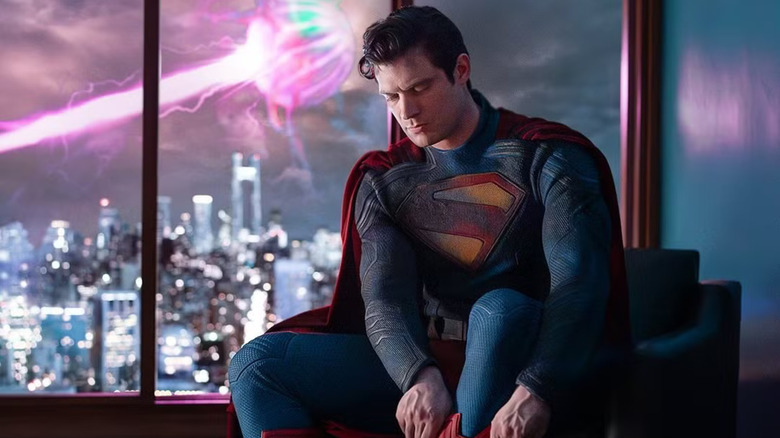
Warner Bros.
Every trend comes and goes. And it feels like, here in the '20s, cinema is on the waning edge of several of them. The uncontrolled bloat of major studios' streaming services came to a halt with last year's writers and actors' strikes, causing many of said services to curtail their spending habits. Major entertainment franchises ("Star Wars") made big cinematic plans, only to cancel them after several high-profile failures, inspiring a pivot to TV that's only proven sporadically successful.
The Marvel Cinematic Universe is an especially interesting case, having managed to crank out a few notable hits since the release of "Avengers: Endgame" in 2019. Still, the franchise has, in the last five years, begun to increasingly lose money due to films under-performing at the box office, troubled productions leading to a massive ballooning of budgets ("Secret Invasion" cost how much??), and a waning interest in its overwhelming glut of content. It's telling that the MCU's biggest recent commercial hits ("Spider-Man: No Way Home" and "Deadpool & Wolverine") have felt less like the franchise is striking out in new, interesting directions, and more like wistful looks backward. They are nostalgic victory laps.
Disney-era "Star Wars" and the MCU both had a good, solid decade of success before faltering. One might recall that Warner Bros.' DC Extended Universe, which began in 2013 with Zack Snyder's "Man of Steel" and ended in 2023 with "Aquaman and the Lost Kingdom," also lasted 10 years, racking up 16 films in total. In that case, though, the franchise was massively hit-or-miss, inspiring both scorn and a passionate following of Snyderbros. It ultimately came to an end with the announcement that writer/director James Gunn would be taking the reins of a brand-new, wholly rebooted DC Comics cinematic universe, simply titled the DC Universe, beginning with the Gunn-directed "Superman" in 2025.
Following the above trends, the new DCU will have about a decade to sort itself out. This time, however, there's a deadline. James Gunn had better get the DC Universe working quickly because there cannot be another reboot after it, what with Superman, Wonder Woman, and Batman all entering the public domain within the next 10 to 13 years.
The decade-long rise and fall of the DC Extended Universe
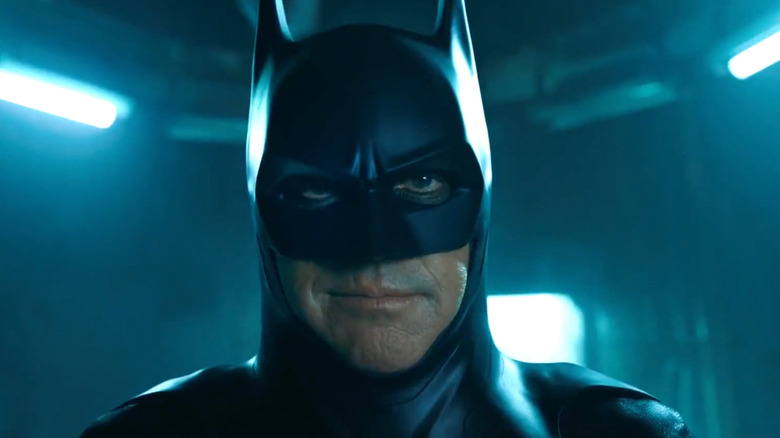
Warner Bros.
To reiterate, the decade-long DCEU was, overall, very uneven. Warner Bros. and Zack Snyder initially created a dark, grounded vision of the DC Comic superhero universe that involved a lot more violence and death, inspired by Snyder's overblown, hyper-adolescent aesthetic. Many didn't take to Snyder's vision in "Man of Steel" and "Batman v Superman: Dawn of Justice," but he did accumulate a vocal army of defenders. Meanwhile, Patty Jenkins' "Wonder Woman" was widely praised when it was released and David Ayer's "Suicide Squad," although critically panned, was a financial hit. Elsewhere, James Wan's "Aquaman" bafflingly made over a billion dollars, while David F. Sandberg's "Shazam!" is one of the best superhero movies ever made (and turned a healthy profit to boot).
Overall, though, the property stumbled a lot during its decade. Infamously, Snyder had to leave his "Justice League" because of a personal tragedy, with "Avengers" director Joss Whedon stepping in to re-write and re-shoot large portions of it. Many fans were outraged by Whedon's many changes to the film, and rallied to have a director's cut released. Snyder's subsequent four-hour version of "Justice League" was released on streaming, tacking another $70 million onto the whole endeavor's price tag.
This was in addition to disappointing commercial turn-outs for the "Wonder Woman," "Shazam!," "Aquaman," and "Suicide Squad" sequels, on top of the "Suicide Squad" spinoff "Birds of Prey (And the Fantabulous Emancipation of One Harley Quinn) under-performing in theaters. Indeed, perhaps we have overestimated the culture's general interest in Harley Quinn, as almost all of the DCEU movies featuring her tanked save for "Suicide Squad." Just as notably, "Black Adam" and "The Flash" lost tons of money. Finally, after a decade of big swings, a few smashes, and many clumsy misses, the DCEU experiment came to an end.
James Gunn's new DC movie experiment begins in 2025, and it would, under most circumstances, feel logical. If superheroes are still drawing big crowds, why not merely reboot the universe and try again? The difference this time, however, is that public domain deadline. Public domain is hanging over the new DCU like the Sword of Damocles. The new DCU will not have the luxury to experiment and play around, risking bombs and failures. It needs to be all bangers since there won't be another chance to reboot DC Comics in cinematic form after this.
Superman, Batman, the Joker, and Wonder Woman enter the public domain in the early 2030s
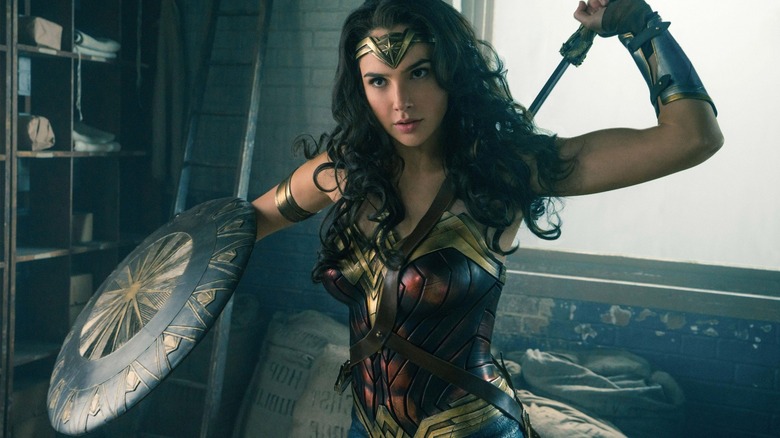
Warner Bros.
As of this writing, the intended lineup of the upcoming DCU includes: "Superman" (2025), "Supergirl: Woman of Tomorrow" (2026), a dark superhero team-up called "The Authority," a Batman film called "The Brave and the Bold," a big screen reboot of "Swamp Thing," a live-action "Teen Titans" reboot, and a film starring the villains Bane and Deathstroke. These are in addition to seven planned TV shows to keep the universe expansive. The DCU is nothing if not ambitious.
And even if the DCU can keep its engines running until 2034 — a risky endeavor as is, seeing as superhero movies appears to be on the wane — then it is still running headlong into a commercial brick wall. Warner Bros. will no longer have exclusive rights to Superman by then, yet Clark Kent remains its star character. Superman was first published in April 1938, and current copyright laws allow characters to stay in certain owners' hands for 96 years. That means Batman will be public property in 2035, the Joker will be public in 2036, and Wonder Woman will follow suit in 2037.
To be fair, the public version of Superman will only be the version seen in the 1938 comic books, meaning the more popular Superman costumes and superpowers (such a heat vision) will still belong to Warner Bros. Lois Lane, however, will be made public immediately.
One might recall that when A.A. Milne's Winnie-the-Pooh and Disney's "Steamboat Willie" entered the public domain in 2022 and 2024, respectively, snarky filmmakers deliberately stuck their thumbs in the eyes of corporate ownership by immediately rushing cheap, deliberately tasteless slasher movies into production. ("Winnie-the-Pooh: Blood and Honey" was awful, by the way.) If Superman were to follow suit, though, prepare for "Superman: The Smallville Killer" or "The Bloodbath of Lois Lane" in 2034.
And with such pointedly schlocky garbage muddying the waters, it's unlikely Gunn or Warner Bros. would want to continue with the character.
If Superman (2025) fails, it may be the final 'official' Superman movie
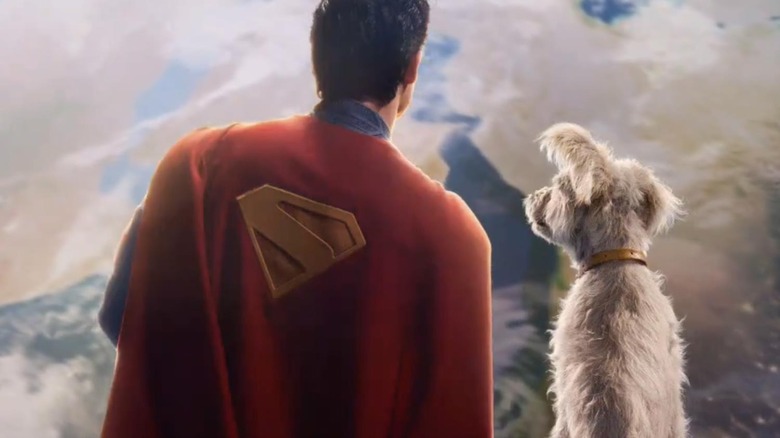
Warner Bros.
So, the DCU is the moment of truth (justice, and the American Way) for Warner Bros. After the bleak, heavy DCEU, the 2025 "Superman" will be the last chance Warner Bros. will ever have to get the character right, as it were. There simply isn't enough time and money to keep monkeying around with Superman and rebooting his universe in perpetuity. Eventually, Superman will be like Dracula or Robin Hood or Sherlock Holmes, reserved for imaginative reworkings every few years by whatever filmmakers want to take a crack at him. The "official" versions will calcify in cinema history, and James Gunn will go down as the last filmmaker to have tried one.
While interconnected "cinematic universes" have been very much in vogue since the success of the MCU, it seems like that, too, may be coming to a close with the DCU. The trend from 2008 up until the present was to tantalize viewers with over-arching supernarratives that stretch over multiple film and TV projects, inviting crossovers and team-ups. Each chapter was a preview for the one that followed, and every character introduction was a promise of a high-profile meeting several chapters down the line. MCU and DCEU fans entered films with mental notebooks, remarking on how certain baffling events in one film will set up future plotlines in another.
But the MCU is petering out, and superheroes aren't the cultural force they once were. If the DCU doesn't attract a massive audience right away, reigniting a general passion for flying superbeings fistfighting god aliens, then Superman will have to start walking slowly toward the door. The DCU truly is the last hurrah.
And then, dear readers, it will be your turn to make a Superman movie.





:quality(85):upscale()/2024/08/06/667/n/1922794/4bc1ce8866b23aaf319c84.46755244_.png)
:quality(85):upscale()/2024/11/05/936/n/1922153/cc2bbd68672a8e1588a964.53876938_.webp)
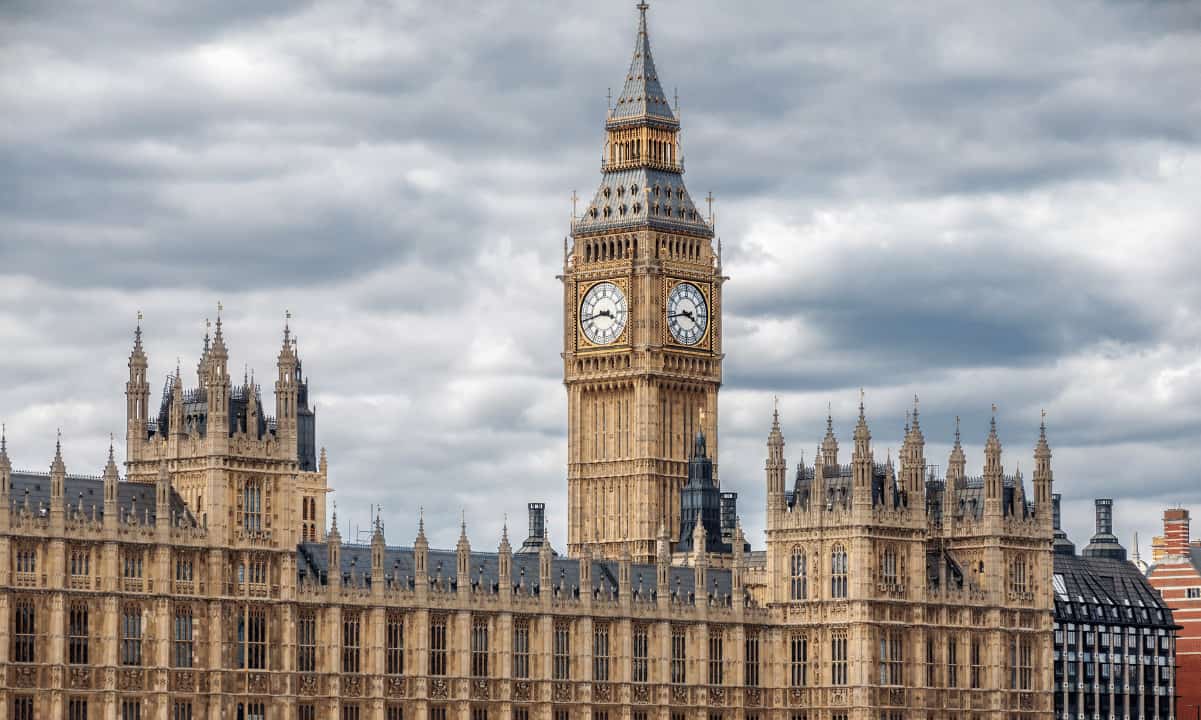

 English (US) ·
English (US) ·